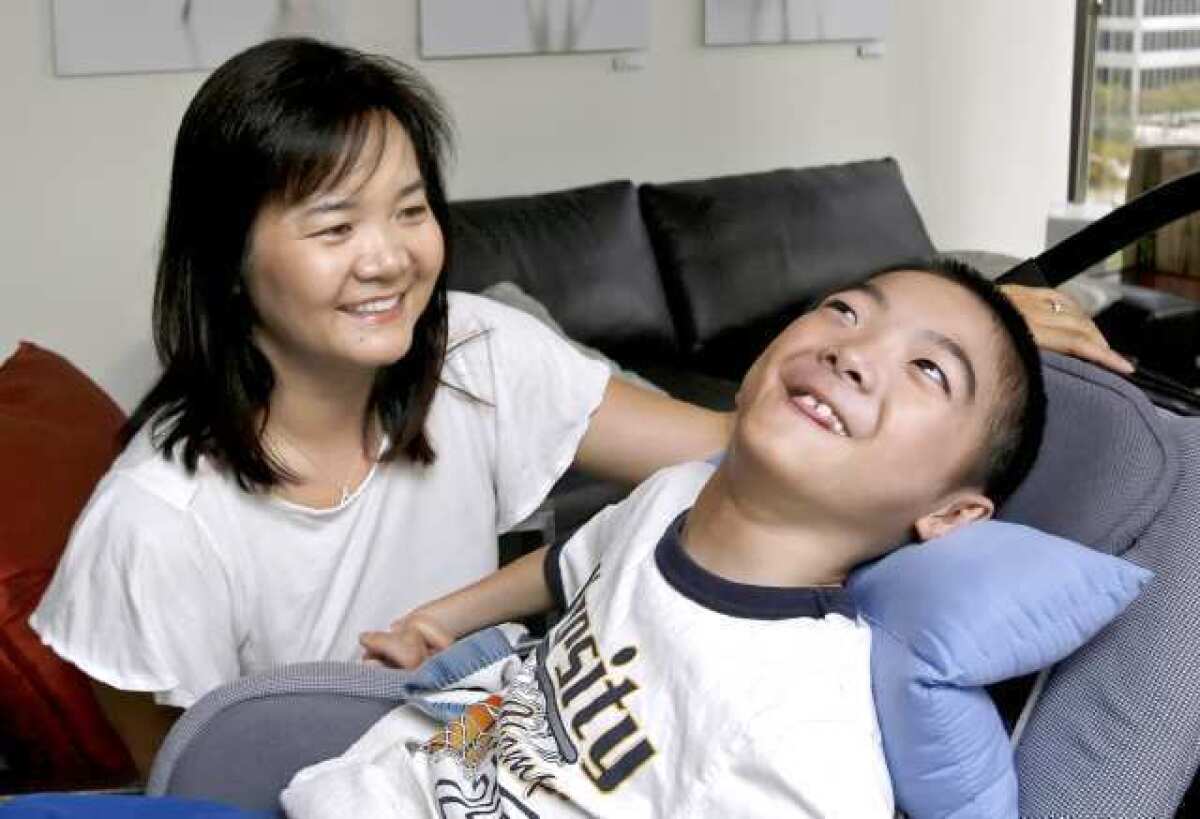Supreme Court hands Verdugo Hills Hospital a setback

- Share via
The California Supreme Court on Thursday threw out a legal rule that had shielded Verdugo Hills Hospital from having to pay millions of dollars to the family of a boy who suffered brain damage shortly after his birth in 2003.
The ruling could force the hospital to pay upwards of $14 million to the family, though a jury found in 2007 that the family pediatrician who already paid $1 million was mostly responsible for the boy’s injuries.
The case dates back to March 24, 2003, when Aidan Ming-Ho Leung was born prematurely at Verdugo Hills. He was released the next day with a hospital-issued manual for the care of newborns. Three days after he was born, his parents noticed Aidan’s eyes were yellow and that he appeared unhealthy.
The manual stated that jaundice is not unusual in newborns and is only rarely dangerous.
The parents called the pediatrician, Dr. Steven Nishibayashi. A staffer told them not to rush in and instead suggested they keep a scheduled appointment for four days later.
But Aidan’s condition worsened, and at 6 days old was rushed to Huntington Memorial Hospital in Pasadena. He had already suffered brain damage from an extreme form of jaundice called kernicterus.
Aidan, now 9, has a functioning brain, but cannot speak or control his muscles and requires extensive care.
After his family sued Nishibayashi and Verdugo Hills, a Los Angeles County Superior Court jury awarded the family $82.8 million in 2007 for future medical costs, $13.3 million for loss of future earnings and $328,000 for other damages. Because most of the damages would be paid over Aidan’s lifetime, the California Supreme Court estimated the present value of the verdict at slightly more than $15 million.
The jury determined Nishibayashi was 55% at fault, the hospital 40% at fault, and the family 5% at fault.
But before the verdict, the family agreed to accept a $1-million settlement from Nishibayashi — the limit of his malpractice insurance.
That left Verdugo Hills Hospital responsible for the rest. The hospital appealed, arguing that Nishibayashi made the medical mistake and that it should not pay most of the award when the jury found the doctor to be the most at fault.
In 2011, an appellate court agreed, saying a rule commonly used in California courts when more than one party is found liable precludes the hospital from paying so much. But in doing so, the appellate court also asked the California Supreme Court to repudiate the rule because it leaves the Leungs with far less money than the jury awarded.
On Thursday, the state Supreme Court unanimously abandoned the so-called “release rule.”
“In light of the unjust and inequitable results the common law release rule can bring about, as shown in this case, we hold that the rule is no longer followed in California,” Justice Joyce Kennard wrote for the court.
The court sent the case back to the court of appeal to resolve other lingering questions that could determine the ultimate amount of money the hospital has to pay out, over what period of time, as well as an overall challenge to the damages phase of the trial.
Stuart Esner, an attorney for the family, hailed the decision.
“It’s been over five years. Now the family is one step closer, a significant step closer, to finally recovering the judgment the jury returned in its favor,” he said.
Robert Olson, an attorney for Verdugo Hills Hospital, said the hospital will continue to contest aspects of the case and that the ruling may prompt hospitals to issue more “alarmist” instructions to patients in order to protect themselves from liability.
“The hospital’s view remains that it did what it was supposed to do, to get the patient — the parents here — to call the doctor. It is the physician who needs to make medical judgments,” he said.
Follow Bill on Twitter @bkisliuk